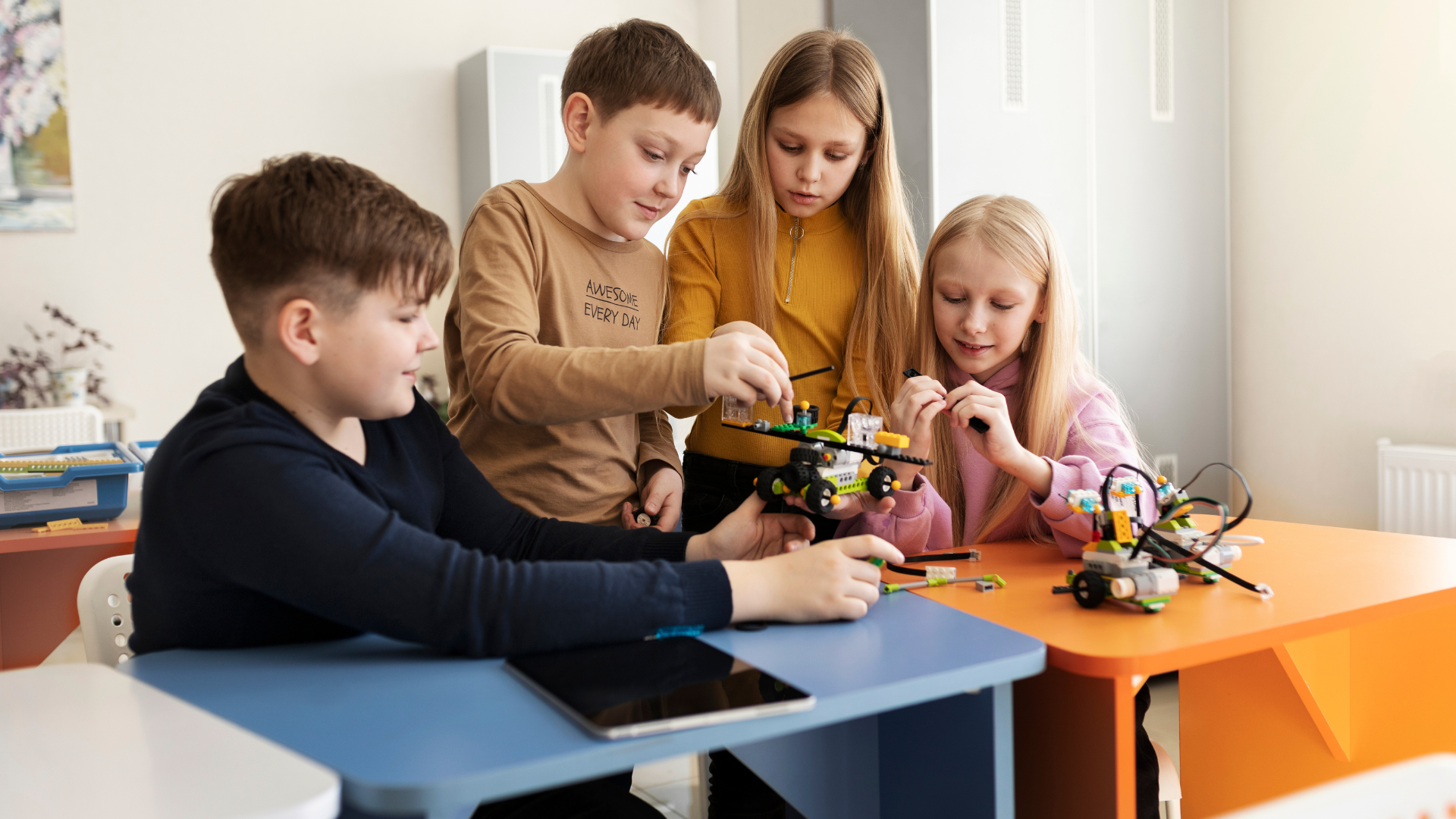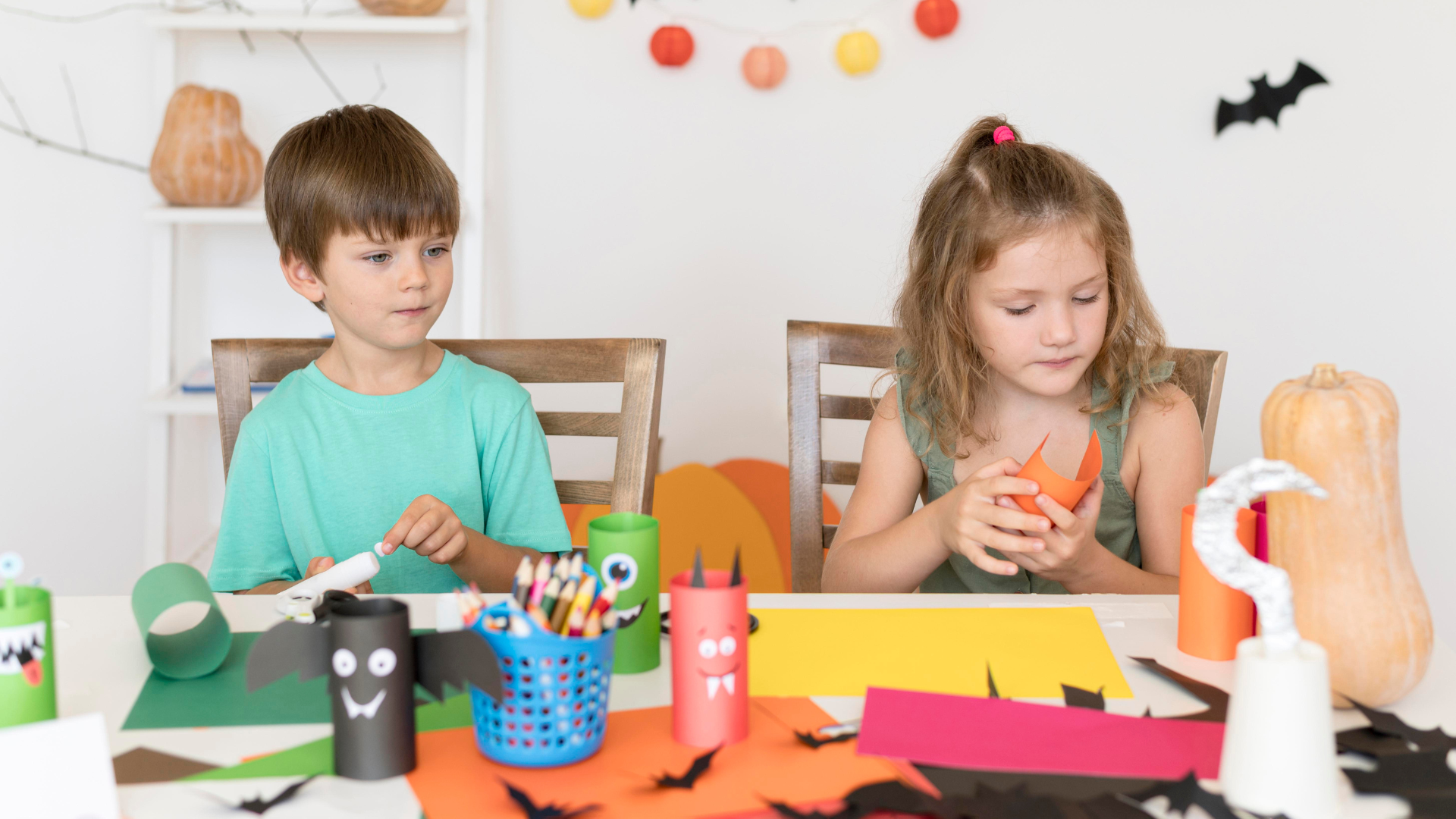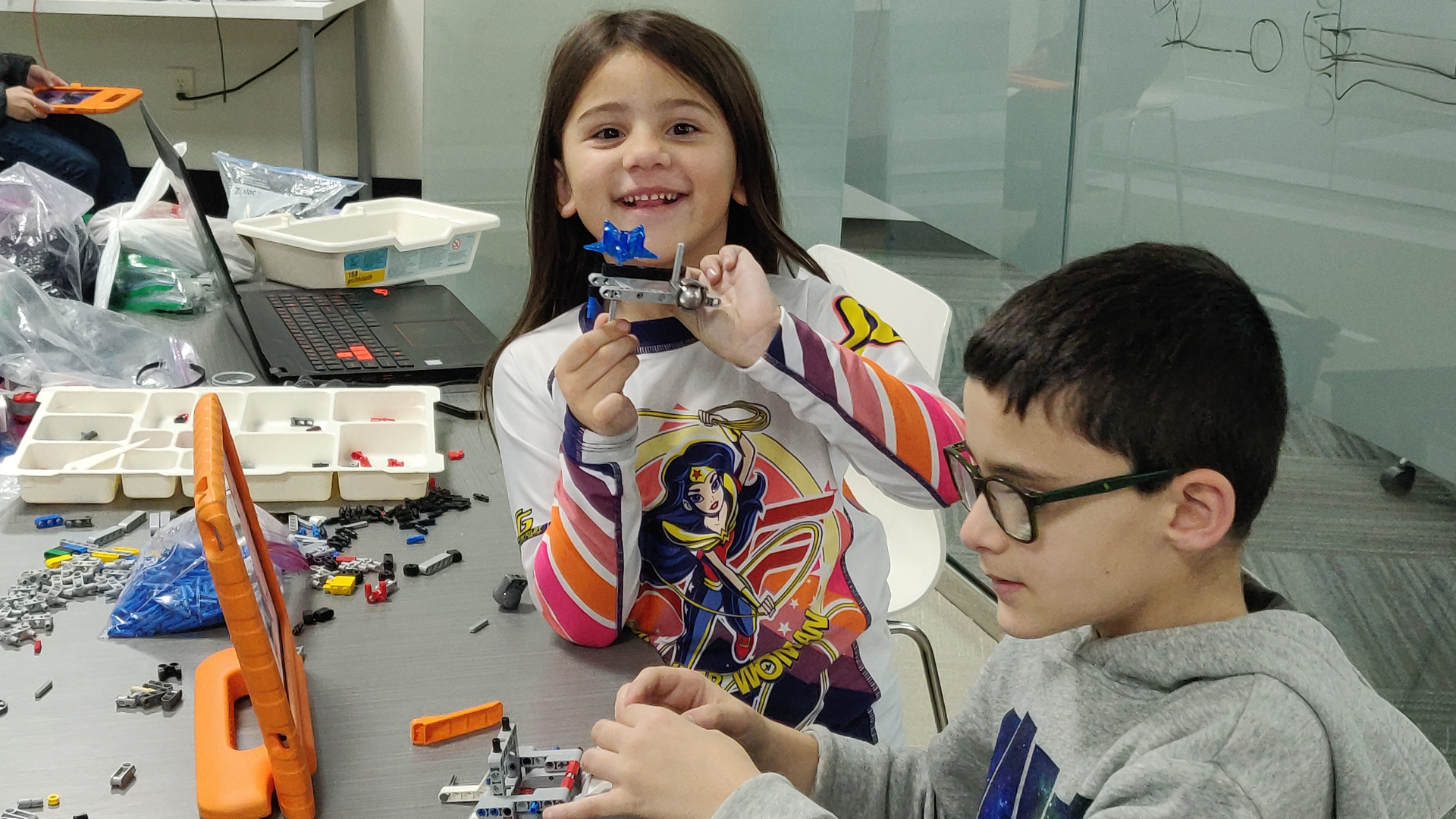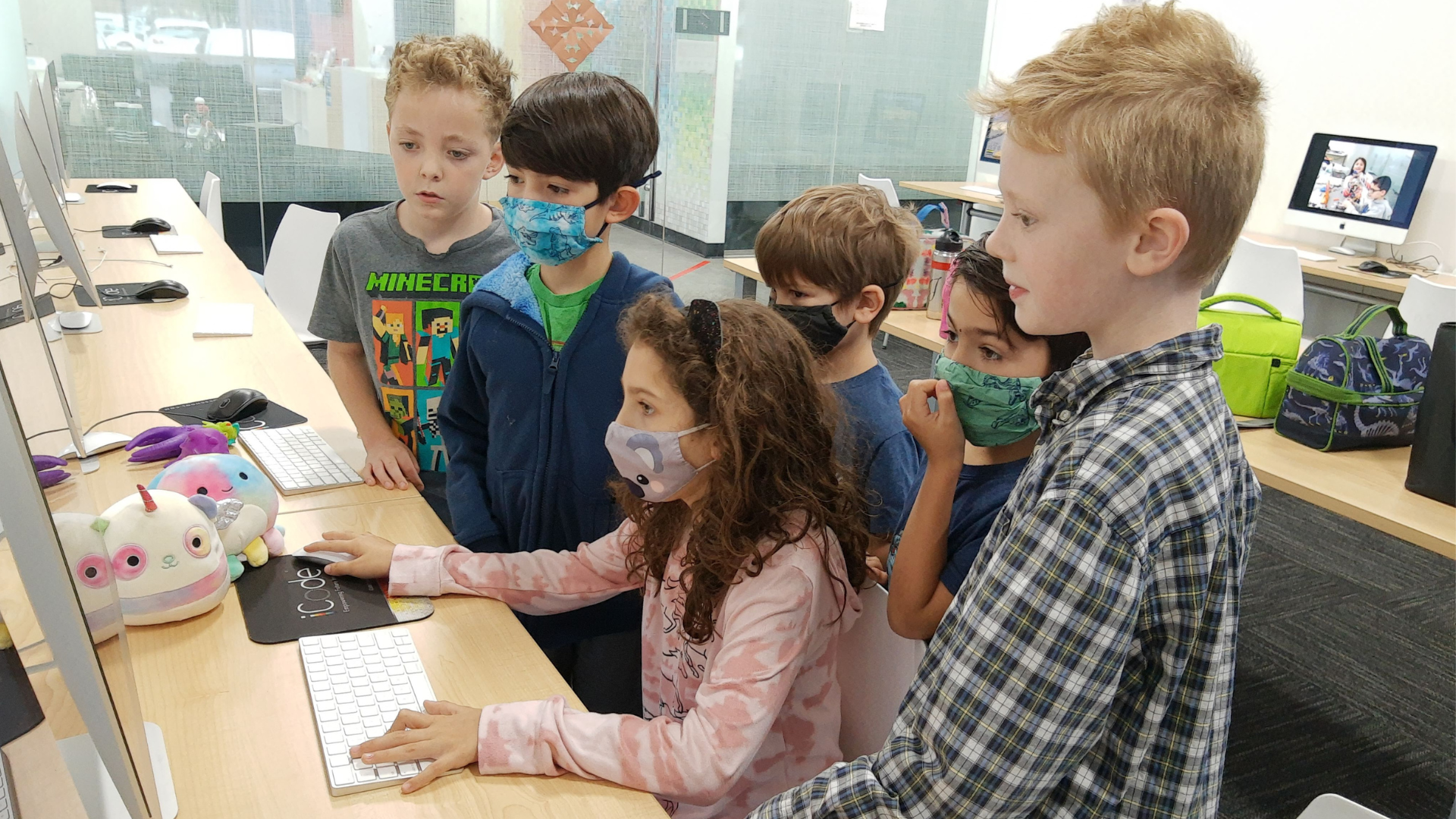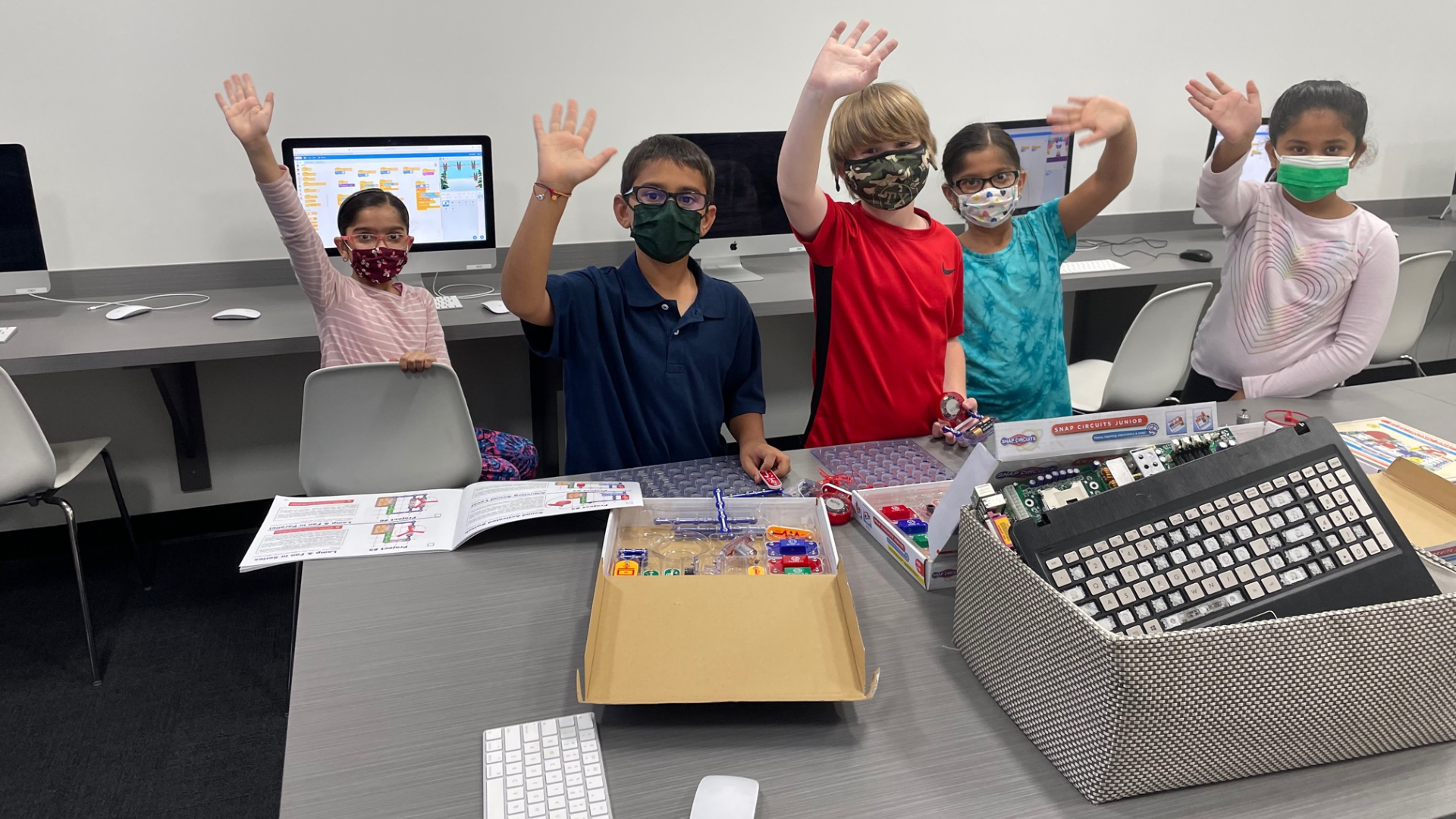Blogs for Parents
Blog
20 Amazing STEM Toys for 7-Year-Olds
As a parent, you want to create the right conditions for your student to excel. The question is, where do you start? One way to keep your child growing in the right direction is to surround them with developmental toys. This article will provide a comprehensive list of STEM toys made explicitly for 7-year-olds. If you’ve never heard of “STEM,” it stands for Science, Technology, Education, and Mathematics. STEM is a specialty area of learning and education (compared with the humanities, which includes philosophy, art, and language studies). The following sections are grouped based on the focal area of each toy category, starting with science STEM toys for 7-year-olds. /*! elementor - v3.7.8 - 02-10-2022 */.elementor-heading-title{padding:0;margin:0;line-height:1}.elementor-widget-heading .elementor-heading-title[class*=elementor-size-]>a{color:inherit;font-size:inherit;line-height:inherit}.elementor-widget-heading .elementor-heading-title.elementor-size-small{font-size:15px}.elementor-widget-heading .elementor-heading-title.elementor-size-medium{font-size:19px}.elementor-widget-heading .elementor-heading-title.elementor-size-large{font-size:29px}.elementor-widget-heading .elementor-heading-title.elementor-size-xl{font-size:39px}.elementor-widget-heading .elementor-heading-title.elementor-size-xxl{font-size:59px} Top Science Toys Kids love science. Unlike other toys, science toys allow them to explore how the universe naturally functions. Here is a list of the top science STEM toys for 7-year-olds that were made just for that purpose. Light-Up Terrarium: Simulate a natural environment and discover nature in a controlled setting with this LED light-up terrarium. Terrariums are among the simplest and easiest toys for exploring nature without getting your hands too dirty. Crystal Growing Kit: Kids learn patience…
Top 4 Amazing Fall STEM Projects for First Graders
Fall is here. Kids will start spending more and more time indoors, but that doesn’t have to limit their exploration and learning! Today we’ll look at the best Fall STEM projects for first graders to keep those little ones occupied. By the way, don’t be surprised if you have as much fun as your kids! These fall projects are easy to set up, super affordable, and totally fascinating. Ready? Let’s go. /*! elementor - v3.7.8 - 02-10-2022 */.elementor-heading-title{padding:0;margin:0;line-height:1}.elementor-widget-heading .elementor-heading-title[class*=elementor-size-]>a{color:inherit;font-size:inherit;line-height:inherit}.elementor-widget-heading .elementor-heading-title.elementor-size-small{font-size:15px}.elementor-widget-heading .elementor-heading-title.elementor-size-medium{font-size:19px}.elementor-widget-heading .elementor-heading-title.elementor-size-large{font-size:29px}.elementor-widget-heading .elementor-heading-title.elementor-size-xl{font-size:39px}.elementor-widget-heading .elementor-heading-title.elementor-size-xxl{font-size:59px} Project 1: Glow in the Dark Slime /*! elementor - v3.7.8 - 02-10-2022 */.elementor-widget-image{text-align:center}.elementor-widget-image a{display:inline-block}.elementor-widget-image a img[src$=".svg"]{width:48px}.elementor-widget-image img{vertical-align:middle;display:inline-block} Kids love gross, gooey, slippery, slimy stuff. What better way to get them involved in science than to have them make their own slime? But, this is no ordinary slime. It glows in the dark! The recipe is so simple you’ll wonder why you never did this before. Below are the ingredients you’ll need to bring this project to life! Glow in the Dark Slime Ingredients ½ Cup of White Glue ½ Cup of Liquid Starch 2 Tablespoons Glow in the Dark Paint Gel Food Color Mixing Bowl Plastic Spoon for Stirring To get started, pour the glue and the glow-in-the-dark…
Exploring the Top 5 STEM Technology Careers for the Future
Our children take a step closer to graduation every day. Whether they’re 6 or 16, you want to prepare them for the world of tomorrow. But what will be the top STEM technology careers for the future?In this article, we’ll take a look at the most promising fields for the STEM technology category based on the U.S. Bureau of Labor Statistics (BLS) Handbook for career predictions and trends.Which careers will offer the highest pay and have high growth trends? Which jobs will exist and thrive across the next decade or more? Let’s dive in and answer all of those questions as we take a look at the top 5 STEM career opportunities. /*! elementor - v3.7.8 - 02-10-2022 */ .elementor-heading-title{padding:0;margin:0;line-height:1}.elementor-widget-heading .elementor-heading-title[class*=elementor-size-]>a{color:inherit;font-size:inherit;line-height:inherit}.elementor-widget-heading .elementor-heading-title.elementor-size-small{font-size:15px}.elementor-widget-heading .elementor-heading-title.elementor-size-medium{font-size:19px}.elementor-widget-heading .elementor-heading-title.elementor-size-large{font-size:29px}.elementor-widget-heading .elementor-heading-title.elementor-size-xl{font-size:39px}.elementor-widget-heading .elementor-heading-title.elementor-size-xxl{font-size:59px}5. Computer Programmers /*! elementor - v3.7.8 - 02-10-2022 */ .elementor-widget-image{text-align:center}.elementor-widget-image a{display:inline-block}.elementor-widget-image a img[src$=".svg"]{width:48px}.elementor-widget-image img{vertical-align:middle;display:inline-block} Ask anyone to predict the top STEM technology careers for the future, and at least one of their responses will be Computer Programmers. According to the BLS handbook, that’s a good answer. With median salaries trending around $93,000 per year, it pays to know how to code.So what does a computer programmer do? They strategize, conceptualize, and write the code for software applications.…
What is the Best Age for Kids to Learn Web Design?
When the internet reached mass-market appeal (sometime in the mid-90s) few realized how big the web design space would become. Today, coding websites can lead to a lucrative career. But what is the best age for kids to learn web design so they’re prepared for the job opportunities of tomorrow?The best age for kids to learn web design is around 9 to 10 years old. By these ages, most kids have vast experience with computers, tablets, smartphones, and other electronic devices. At 9 to 10 years of age, kids have viewed thousands of websites and they understand many of the most frustrating design flaws. They also have ideas about what should be fixed.Virtually every business on the planet needs a website. Businesses that don’t have websites struggle to capture market share. The challenge for most businesses is they aren’t run by savvy programmers. Instead, owners need help, and that’s why opportunities abound for kids who learn web design at the right age. /*! elementor - v3.7.8 - 02-10-2022 */ .elementor-heading-title{padding:0;margin:0;line-height:1}.elementor-widget-heading .elementor-heading-title[class*=elementor-size-]>a{color:inherit;font-size:inherit;line-height:inherit}.elementor-widget-heading .elementor-heading-title.elementor-size-small{font-size:15px}.elementor-widget-heading .elementor-heading-title.elementor-size-medium{font-size:19px}.elementor-widget-heading .elementor-heading-title.elementor-size-large{font-size:29px}.elementor-widget-heading .elementor-heading-title.elementor-size-xl{font-size:39px}.elementor-widget-heading .elementor-heading-title.elementor-size-xxl{font-size:59px}Why Should I Want My Kids to Learn Web Design? /*! elementor - v3.7.8 - 02-10-2022 */ .elementor-widget-image{text-align:center}.elementor-widget-image a{display:inline-block}.elementor-widget-image a img[src$=".svg"]{width:48px}.elementor-widget-image img{vertical-align:middle;display:inline-block} When kids learn…
4 Halloween Science Projects for Kids
Giant spiders. Skeletons on horseback. Pumpkins on every stoop! Our favorite spooky holiday is just around the corner. So we’ve got four Halloween science projects to set the mood and keep your little ones entertained as temperatures start to drop.Halloween is an excellent opportunity to teach your kids about science. Seemingly simple decorations can become engaging projects. Here are the science projects we’ll undertake today: Project 1: Dry Ice Witch’s Cauldron We’ll start with making a simple foggy witch’s cauldron. This cauldron makes a brilliant decoration, and kids have a lot of fun watching it come to life.The instructions are straightforward, but you will need a ‘cauldron’ and dry ice.Supplies you will need:DRY ICE WITCH’S CAULDRON:2 Liter Plastic ContainerHot WaterDry IceTowel‘Cauldron’HammerHeavy Leather GlovesDry ice is so cold it can burn you if you aren’t careful. You will need a pair of heavy leather gloves if you plan to handle the ice with your hands.Most people can find dry ice in local grocery stores near the front of the store. Some Wal-Mart stores carry it, so you might check there to start.Once you have your dry ice, you’ll want to lay it out on a towel and bust it up into…
A Parent’s Guide to Getting Kids Excited About STEM
As a parent, you want your kids to get excited about science, technology, engineering, and math (STEM). You know that if they take an early interest in these subjects, it will positively affect the rest of their lives. Kids who grow up interested in STEM tend to achieve more than those who do not. So how do you get your kids excited about STEM when you have to compete with phones, video games, and other distractions? In this guide, I’ll lay out a step-by-step plan to help introduce STEM to your kids and spark an inferno of excitement in their hearts that could lead to lifelong learning, exploration, and success. The steps in this article will help you get your kids excited about STEM from early childhood and beyond.Your child’s attention and interest are almost guaranteed when you start early and leverage simple psychology-backed approaches.Throughout this article, we’ll show you how to make STEM the only thing your kids want to talk about! Step 1: Introduce STEM Toys in Early Childhood Learning Have you ever asked someone how they got interested in something, and they responded, “I don’t know; I’ve done it for as long as I can remember.”The process…
Why Is STEM Education Important in Early Childhood
STEM stands for Science, Technology, Engineering, and Math. These fields are growing rapidly and will continue to do so over the next decade. STEM education has been shown to help students excel academically while preparing them for careers in these growing fields. Each STEM component contributes significantly to a well-rounded education.It provides a skill set that governs the way we think about the world around us and how we can interact with various environments. With constant innovation, more and more businesses are looking for people with higher technical abilities. Since most businesses are leaning into tech solutions, those with technical skills will be more successful when seeking jobs in the future. 4 Reasons Why STEM is Important in Early Childhood Education Subjects like mathematics or engineering enable people to examine information, work through problems, and make deliberate judgments when building solutions. They improve problem-solving skills and the ability to apply knowledge to new projects.STEM covers a wide variety of subjects allowing each child to choose an area they want to focus on. Practically, STEM education is about scientific creativity, where kids get a chance to experiment.The biggest advantage of a STEM curriculum is that it will establish a connection between academics and skills…
Get Your Kids Excited About Coding: 5 Things You Can Do
Technology is changing at a rapid pace, and adapting to it can be challenging. The world’s job market is evolving and the demand is growing for workers with a mastery of technological skills. But the supply of qualified workers is low. Many parents have noticed this trend and are encouraging their children to pursue coding from an early age so they stay relevant in the future job market.Before we look at six ways you can spark your kid’s interested in coding, we'll look at why kids’ coding is so important. Why Is Kids’ Coding Necessary? The young, agile mind of a child, which continuously questions the world around them, possesses the ability to develop and grasp concepts much easier than their older counterparts. Their creative imaging power helps them come up with innovative solutions to problems, and as a result, a progressive mindset is formed.Coding is much easier to introduce at this pivotal stage of development. Consistent interaction with coding at an early age will help develop their cognitive abilities as well as how they view the world around them.Now that we know why kids’ coding is crucial, let's talk about how to make kids’ coding exciting for these young minds. 5 Creative Ways To Get…
Kids Computer Programming – Why Kids Should Learn Computer Programming
When everyone's talking about minimizing kids’ screen time, why is kids’ computer programming in demand? Let's explore why kids should learn computer programming. Why Should Kids Learn Computer Programming? Parents know the future of jobs is in tech, and they want their children to be future-ready. But that's not the only reason. Some of the most compelling reasons for youngsters to pursue computer programming are based on the soft skills students learn through programming. Kids’ Computer Programming Increases Curiosity Kids get excited seeing and learning new things, especially when it comes to technology. Learning to code is a great way to harness that curiosity.Understanding programming means understanding the world around us. Knowing how things work allows you to think of new things that can be done. There are endless possibilities to what can be achieved through programming.Parents can't create this curiosity or enthusiasm on their own. But they can guide their kids toward kids’ computer programming options to start the process and ignite the spark in their child. Kids’ Computer Programming Helps Develop Resilience Children who learn to code also learn to bounce back after a failure. They understand that failure is only a bad thing if you do not learn from it. Even with…



